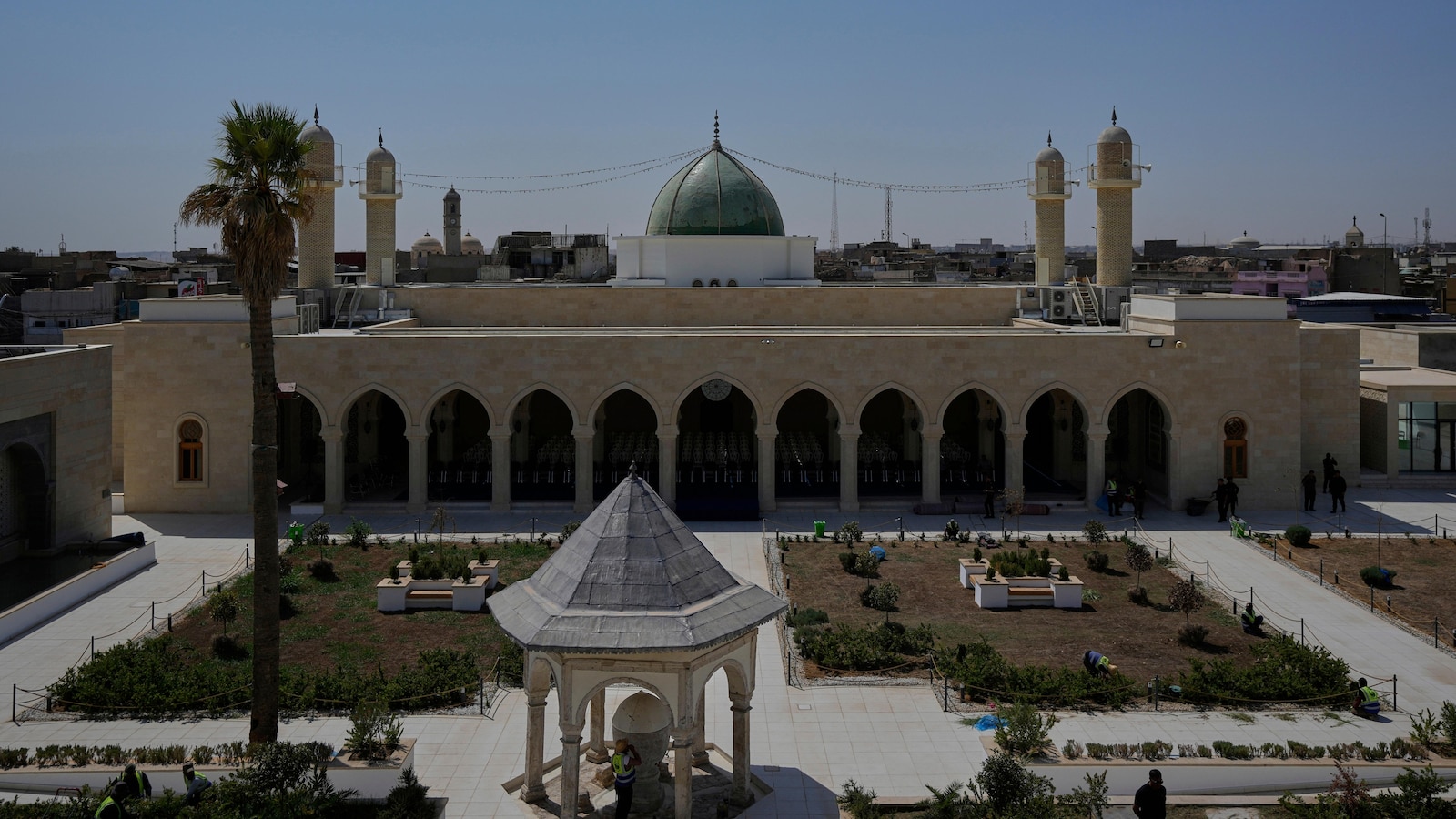Iraq reopens Mosul's historic al-Nuri Mosque eight years after Islamic State destruction
Prime Minister Mohammed Shia al-Sudani presided over the ceremony marking completion of a UNESCO-backed reconstruction of the 850-year-old mosque and its iconic leaning minaret.
Iraq’s prime minister on Monday presided over the official reopening of the historic al-Nuri Grand Mosque and its leaning minaret in the heart of Mosul’s Old City, eight years after the structures were destroyed by militants from the Islamic State group.
For roughly 850 years the leaning minaret of al-Nuri stood as an iconic landmark in Mosul. In 2014, Islamic State leader Abu Bakr al-Baghdadi used the mosque to declare a so-called caliphate by delivering a Friday sermon and leading prayers. As Iraqi forces closed in during the 2017 battle for Mosul, militants detonated explosives inside the mosque complex, leveling the buildings.

UNESCO, working alongside Iraqi heritage and Sunni religious authorities, led efforts to reconstruct the minaret and mosque using traditional techniques and materials salvaged from the rubble. The U.N. cultural agency raised about $115 million for the reconstruction project, with major contributions from the United Arab Emirates and the European Union.
Prime Minister Mohammed Shia al-Sudani said in a statement that the reconstruction "will remain a milestone, reminding all enemies of the heroism of Iraqis." The reopening ceremony in Mosul’s Old City drew government officials and representatives involved in the project.
Conservation teams sought to restore the mosque and its distinctive leaning minaret as closely as possible to their pre-war condition, combining archaeological evidence with materials recovered from the site. The project was framed as both a cultural recovery and a symbolic rejection of the militants’ attempt to erase local heritage.
Mosul and the surrounding Nineveh province suffered widespread destruction and displacement during years of fighting with Islamic State militants and the campaign to retake territory from the group. The loss of historic sites, including al-Nuri, became emblematic of the broader cultural toll of the conflict.
UNESCO and Iraqi authorities described the reopening as a step in broader efforts to rehabilitate Mosul’s Old City and restore public life to areas that were among the hardest hit during the conflict. The reconstruction of al-Nuri is among the most visible projects aimed at reviving the city's cultural landmarks.
Officials involved in the rebuilding emphasized the technical and archaeological challenges of reconstructing a centuries-old structure from heavily damaged remains. They said the use of traditional building methods and the incorporation of salvaged stones were intended to preserve the site's authenticity.
The ceremony follows years of planning, fundraising and conservation work. International donors and cultural preservation agencies have continued to fund projects in Iraq aimed at restoring heritage sites damaged or destroyed during the years of Islamic State control and the campaign to defeat the group.
The reopening of the al-Nuri Grand Mosque is likely to be viewed by many Iraqis as a potent symbol of recovery for Mosul, where rebuilding infrastructure, restoring services and addressing the needs of displaced residents remain ongoing priorities for the central and local governments.